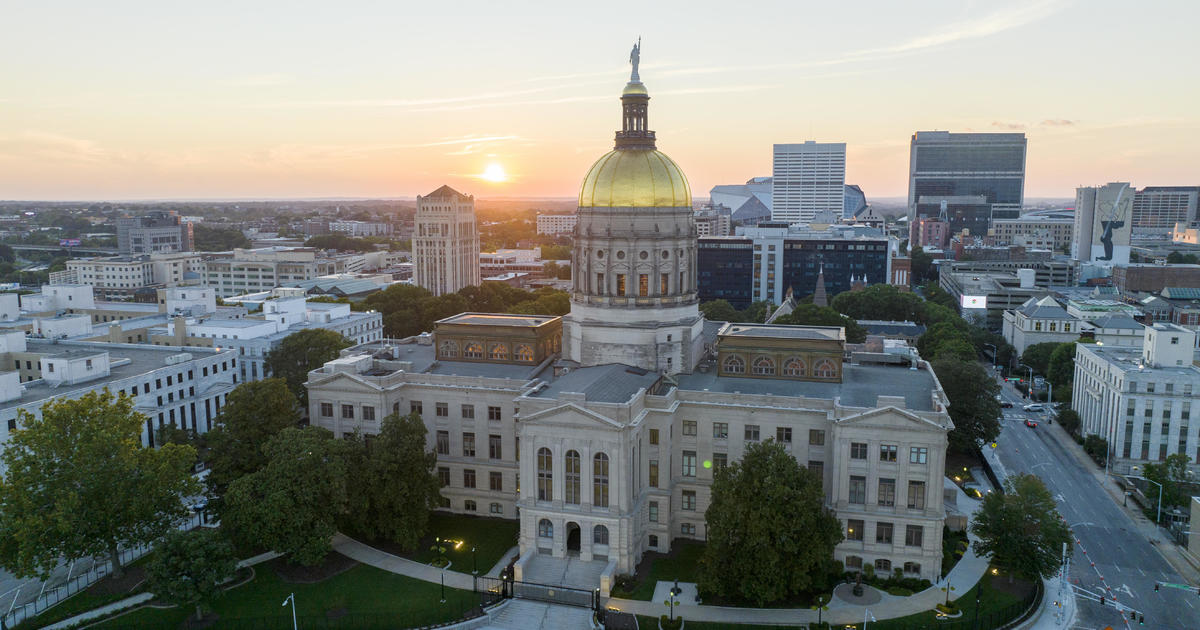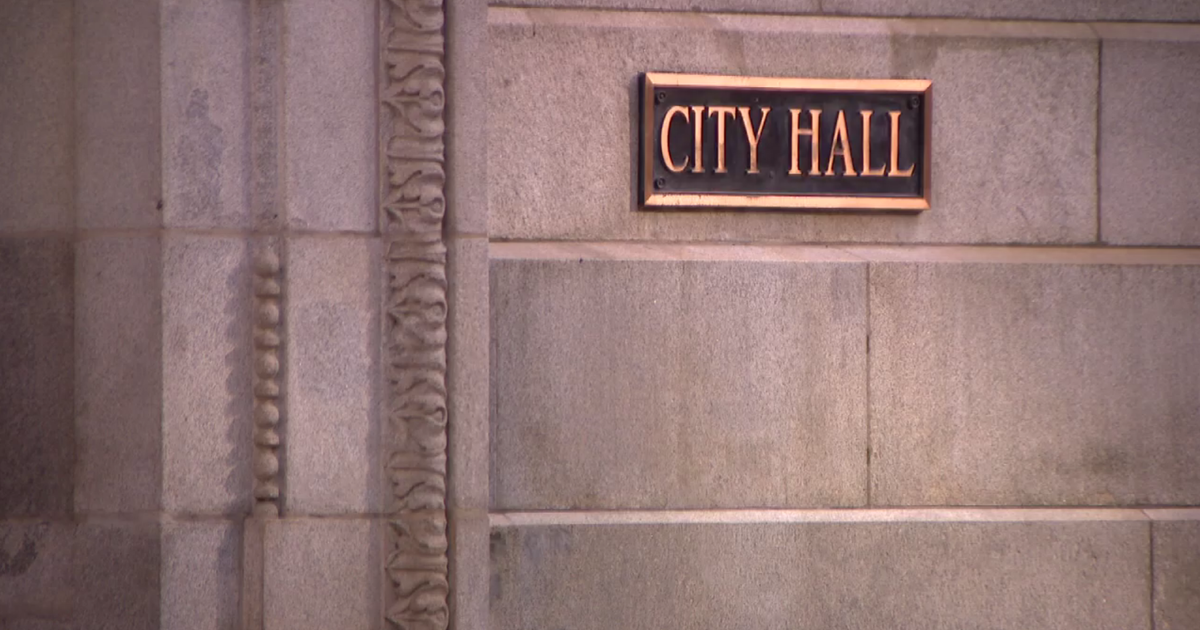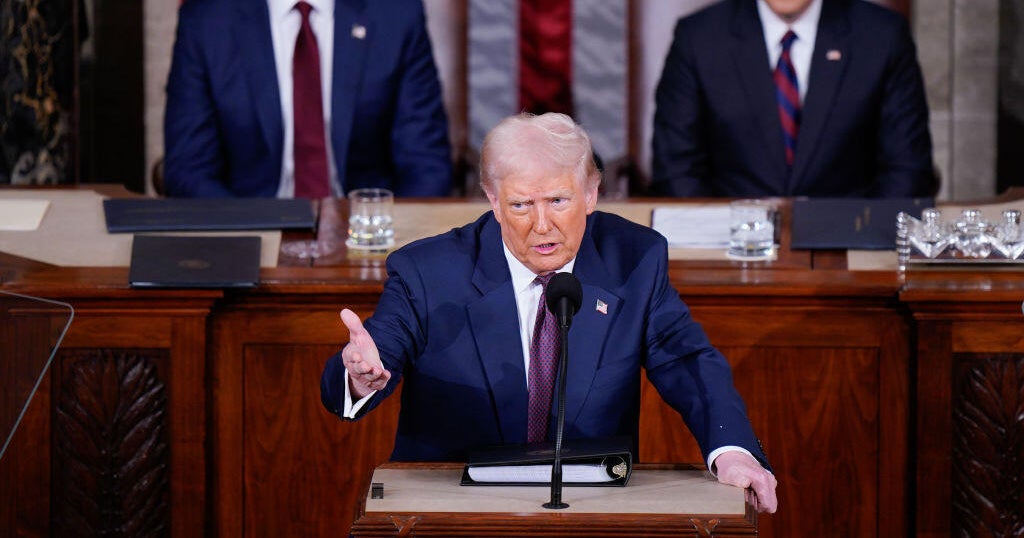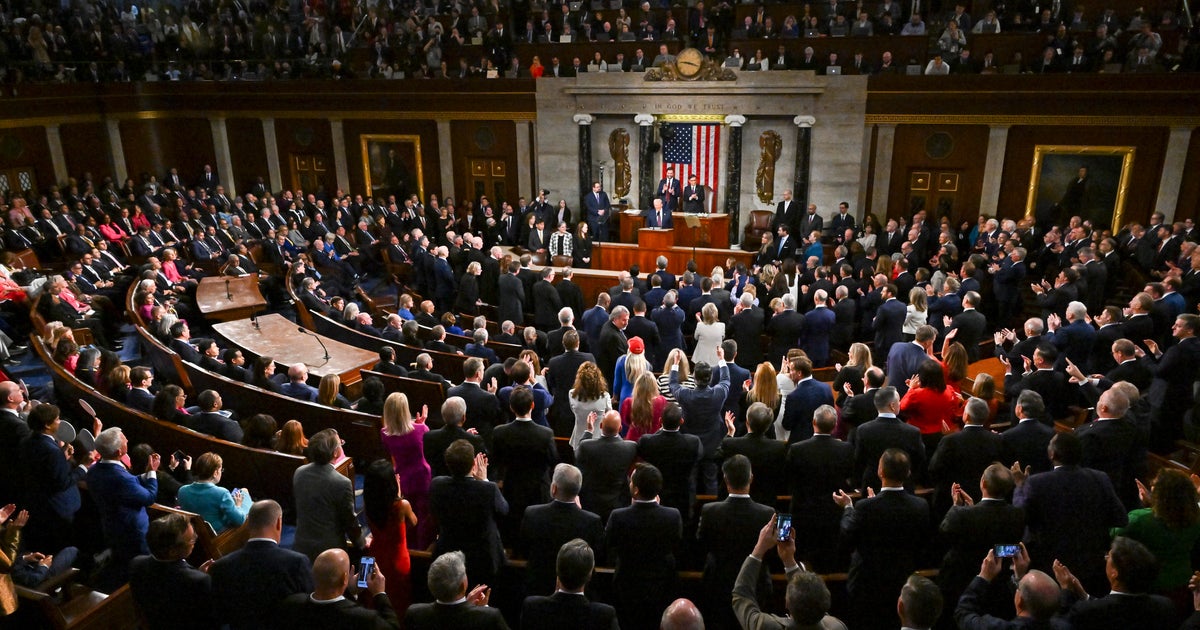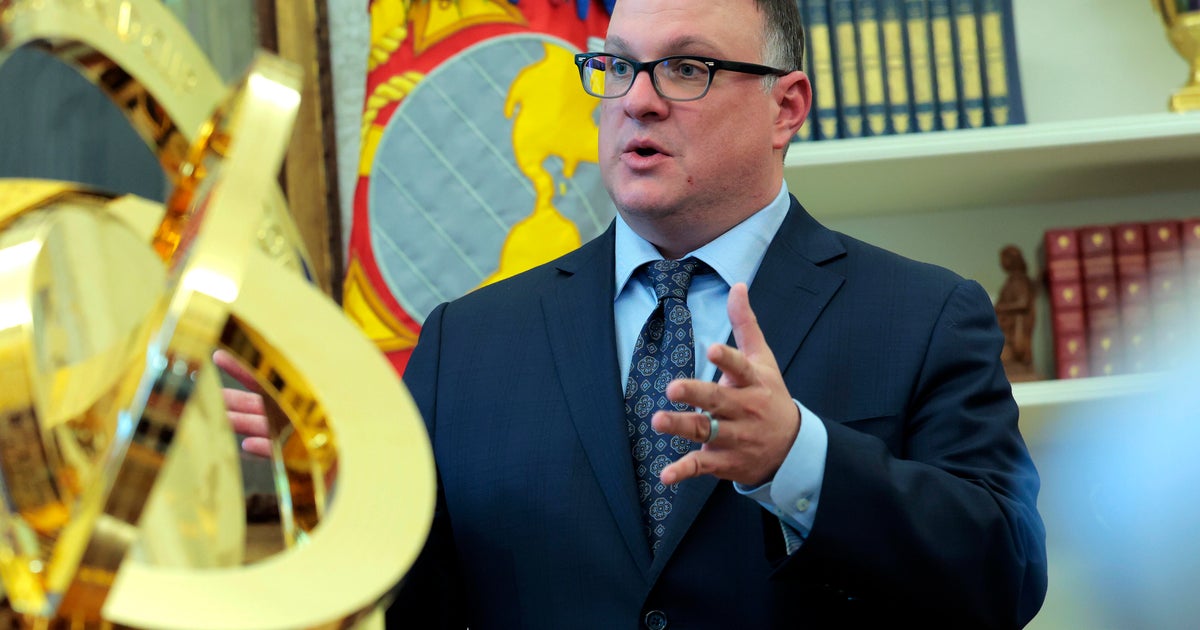Congress is already gearing up for the next government funding fight. Will this time be any different?
Washington — Last month, lawmakers in Congress finally resolved a funding fight that had stretched on for months, approving two separate bills to keep the government open and avoid a shutdown that would have had dire economic consequences.
And they did it just in time to start the process all over again. The funding packages will keep the lights on for the rest of the fiscal year, which is already halfway over.
A delay in approving annual spending bills is nothing new in Washington. In 2022 and 2018, the process also stretched into March. In 2017, it wasn't resolved until May.
But this time around, many Republican lawmakers in the House made a concerted effort to do things differently. Fresh off capturing the chamber in the 2022 midterm elections, Rep. Kevin McCarthy agreed to demands by a small group of hard-right conservatives who wanted lawmakers to limit spending and take up funding bills individually. McCarthy won the speakership when he agreed, only to lose the job months later when he abandoned that approach as it collided with the realities of governing.
Then came an attempt to give the appropriations process teeth by setting an April deadline to pass the full-year spending bills or impose across-the-board cuts. Finally, there was the effort to avoid the usual massive spending package by splitting it into two pieces of legislation — a far cry from the individualized approach demanded by conservatives.
The moves were meant to do away with the usual funding pattern that has taken hold in Congress: approving government spending in what's known as an omnibus bill, often before a holiday break when there is little time for rank-and-file lawmakers to carefully review the details.
But in a sign of just how resistant to change Capitol Hill can be, the final spending package sailed through Congress less than 48 hours after it was unveiled, with lawmakers eager to leave town for a two-week recess. At the end of the day, little about the process of funding the government had changed. And there are few signs that it will be much different next time.
"After all of that delay, how different ultimately was the outcome?" said Sen. Patty Murray, the top Democratic appropriator in the upper chamber. "We are here, six months into the fiscal year, and agencies will just have six months left to leverage these full-year spending bills."
What is the budget process supposed to look like?
Under the Constitution, Congress must approve any money spent by the federal government. Bills to approve that spending must originate in the House, pass the Senate and be signed by the president before departments and agencies can use the funds.
The Congressional Budget and Impoundment Control Act of 1974 lays out the process for approving spending bills for departments and agencies before the beginning of the fiscal year on Oct. 1. The president is supposed to submit a budget to Congress by the first Monday of February, outlining how much he thinks the sprawling executive branch needs for the coming year.
The House and Senate budget committees are then meant to pass a budget resolution by the middle of April. In mid-May, the House is supposed to begin considering the appropriations bills. By the end of June, the House is expected to conclude the process, according to the Congressional Research Service.
But it rarely goes as planned.
"Congress has created a budget process over time through various statutes, rules, practices, and precedents. Together, these component parts make up a complex process involving multiple decisions and actions that could occur at various points during the year," a CRS report from July reads, noting that "there is no single timeline" to predict when each step in the process will occur every year.
Indeed, in recent decades, Congress has hardly ever stuck to that timeline. According to the Pew Research Center, Congress hasn't passed more than five of its 12 appropriations bills on time since 1996, opting almost every year for continuing resolutions that extend funding before ultimately adopting omnibus packages to get the government funding over the finish line. A government shutdown occurs when spending authority expires without an extension or another bill.
Omnibus packages are appealing to lawmakers because they can often include policies or programs that wouldn't pass if they were taken up in isolation. Both parties have used this to their advantage over the years, leveraging the threat of a government shutdown to pass enormous spending bills with their priorities attached.
Lawmakers have strong incentives to avoid shutdowns, since they can be economically and politically costly. The last funding lapse, which stretched from December 2018 until January 2019, caused a permanent loss of about $3 billion, according to a Congressional Budget Office report. And Voters react strongly to even the threat of a shutdown and the dysfunction it represents. Congress' approval rating hit a near-record low of 13% last October, according to Pew. In December 2018, its approval rating was 9%.
On the other hand, that aversion to shutting down the government also gives leverage to those in safe districts who see an opportunity to extract concessions. Some conservatives have suggested that a shutdown wouldn't be so bad.
"I'm not afraid of a shutdown," Rep. Chip Roy, a Texas Republican said at a news conference days before Congress came together to fund the government, calling a shutdown a "swamp" excuse.
How Republicans tried to do things differently
Opposition from House conservatives, who pushed to consider individual bills and cut overall spending, was the key factor that delayed passage of this year's funding packages.
The dynamic began at the start of the new Congress. When House Republicans took control of the chamber in January 2023 after their victories in the midterm elections, they vowed to reform the appropriations process. And after a bruising 15-round speaker election, McCarthy was selected to lead the chamber. He pledged to "end wasteful Washington spending" and made several concessions to a group of conservatives, who would go on to wield outsized influence on the California Republican's tenure.
The spending fight came to the fore as a deadline to raise the debt ceiling approached last summer. The debt ceiling limits how much the government can borrow to fulfill its spending obligations, and is separate from appropriations bills, which set the funding levels.
McCarthy considered using the deadline as an opportunity to, as he put it, "examine our nation's finances" and cap spending at the previous year's levels, in accordance with the deal he made with his conservative members. But he ultimately reached a deal with the White House last May to lift the debt ceiling without extracting major spending cuts. The two sides also agreed on a topline funding level for the coming fiscal year.
House conservatives were outraged, saying McCarthy had violated their agreement. They halted legislative work on the House floor in a rare protest that dragged on for days. By the next week, McCarthy had relented. House appropriators abruptly reversed course, agreeing to mark up spending bills at lower levels. The shift led to a monthslong back and forth between the House and Senate that effectively stalled the funding process.
As the start of the new fiscal year approached, the House and Senate remained far apart on their plans to avert a shutdown. With just hours to find a solution at the end of September, McCarthy defied House conservatives to bring up a short-term funding extension, successfully avoiding a shutdown with the help of Democrats.
Days later, eight House conservatives voted to oust McCarthy from his post, arguing that he had reneged on the commitments he made at the start of the Congress. With McCarthy out, it took weeks for the GOP conference to elect a new speaker, further delaying appropriations work.
At the end of October, House Republicans finally settled on Speaker Mike Johnson, a little-known member from Louisiana whom conservatives saw as one of their own, to lead the chamber. Weary from the spending fight and lengthy speaker battle, conservatives granted him more leeway to find a way to fund the government.
Johnson soon proposed a two-step approach to extend the funding deadline past the winter holidays and give lawmakers more time to pursue individual spending bills. But Republicans were unable to reach agreement on a number of them, forcing the speaker to reach across the aisle to push off those deadlines yet again.
In the end, Johnson reached a deal with Democrats that largely mirrored what McCarthy had agreed to months earlier. Instead of one large spending bill, the funding was split into two packages, keeping the government open until October.
Despite the chaos and vows to change things, when the dust settled, Congress largely stuck to its usual ways, much to the chagrin of Republicans who came to Washington vowing to change things.
"When I first came to Congress, I was warned that this is how this town operates," Rep. Eric Burlison, a Missouri Republican said at a House Freedom Caucus news conference last month. "But I had a glimmer of hope, that we had the majority, that we had enough people that were fiscally sane, and that this time it would be different. Unfortunately it's not different."
Rep. Matt Rosendale, a Montana Republican, said the House conservatives had fought "extremely" hard to reform the process in the lower chamber on spending and beyond, saying that "everyone recognizes that this place is broke, that this system is broke."
Rosendale pointed to the House's 72-hour rule, which grants lawmakers the time to review legislation after it's unveiled. He pointed to the effort to bring single-subject legislation to the floor along with an open rule process that would guarantee debate and amendments on the House floor.
"All of that has been thrown out the window," he said.
Reform efforts and what comes next
Despite the effort for reform, the policies and spending levels pushed by the House conservatives had next to no realistic chance in the Democratic-controlled Senate, giving House leadership little choice but to abandon the push, even with the outsized influence wielded by the conference's right flank. But that didn't quell conservative frustrations.
"We had a stronger hand a year ago and we should have played that hand," Good said last month. "If we'd played that hand appropriately we wouldn't be where we are today, we wouldn't have a new speaker, quite frankly."
For the conservative lawmakers, who largely hail from safe districts, pressing for extreme cuts or policies — even if it risked shutting down the government — came with little risk and a potentially high reward of achieving some of their policy goals. That dynamic has not changed.
"If you surrender, you lose every time," said Rep. Andy Biggs, an Arizona Republican. "But if you fight, you've got a chance to win once in a while at least."
As for the rest of Congress, while many touted the funding package that lawmakers ultimately approved, few appeared satisfied with the underlying process. Some have ideas for how to change it.
Rep. Robert Aderholt, an Alabama Republican who sits on the House Appropriations Committee, urged his colleagues in a recent letter to delay selecting a new committee chair after Rep. Kay Granger's early departure, arguing that the conference should instead focus on reforming how spending bills are crafted.
In an interview with CBS News, Aderholt recalled that when he came to Congress more than two decades ago, appropriations bills were individually brought to the floor and regularly passed with more than 300 votes. He said the partisan infighting and use of omnibus packages in recent years are a large part of the problem.
"I think we just have a lot of division and a lot of folks are just very disenchanted with the appropriations process, and that's why the default position for a lot of members is just to vote no," Aderholt said. "And I'd like for us to come back to the day where members are actually very proud of what's in the appropriation bill and know that they have had a hand in it, no matter who they are."
The Alabama Republican, who had expressed interest in leading the committee but never officially launched a bid, has proposed a handful of reforms — from moving toward zero-based budgeting and empowering authorizers to involve more members in the process, to creating thresholds of support for bill riders and earmarks to be considered.
"Every member that I've talked to, whether it be rank-and-file members, whether it be other chairmen, whether it be steering committee members, they acknowledge that there are some real problems with the appropriations process, and that we've got to make some real changes," Aderholt said. "And if we don't, I think everybody fears we're all going to end up in the same place that we were this last time."
The Republican Steering Committee on Tuesday selected Rep. Tom Cole, the House Appropriations Committee vice chairman, to fill Granger's seat as the House GOP's top appropriator. Aderholt made clear that he's hoping to work with Cole on a path forward with the possible reforms.
"I think he knows there needs to be a lot of changes as well. And so you know, I'm offering these up as trying to work with him to try to figure out a path forward in this," Aderholt said. "Anybody on the appropriations committee, and certainly the chairman, wants to see a bill that can easily go through the House or the Senate, and I think this process makes it more easy."
Looking ahead to the next deadline to fund the government at the end of September, the appropriations process is already falling behind the schedule outlined in the Budget Control Act. President Biden unveiled his budget proposal in March, rather than the first Monday of February.
Other factors threaten to delay the process even further. Lawmakers will be more difficult to pin down this fall, when the election season will get into full swing, making appropriations work less of a priority. And the election itself will likely make lawmakers reluctant to approve spending bills before a possible shift in party control of the House, Senate and White House.
With an eye toward future funding fights, Murray, the Democratic appropriations chair in the Senate, emphasized that lawmakers should learn from the "hard lessons" of the last few months about getting things done in divided government.
"We can craft bipartisan bills," she said. "But when House Republicans stop everything to renegotiate the deal they struck with the president, when they insisted on partisan poison bills, when they listened to the loudest voices on the far right … it wasted months of precious time far better spent crafting bills that grow our economy and protect our country and make things better for folks back home."




